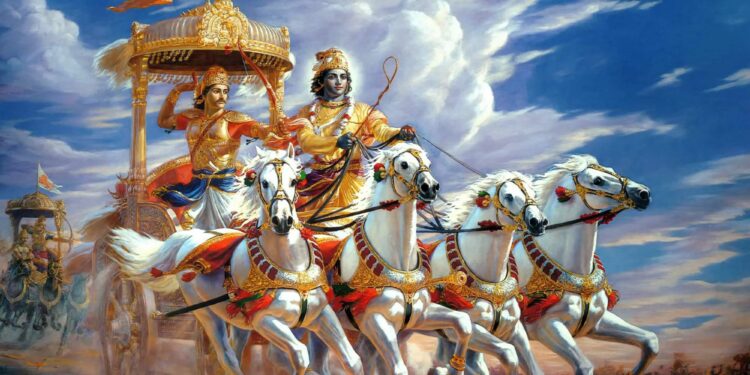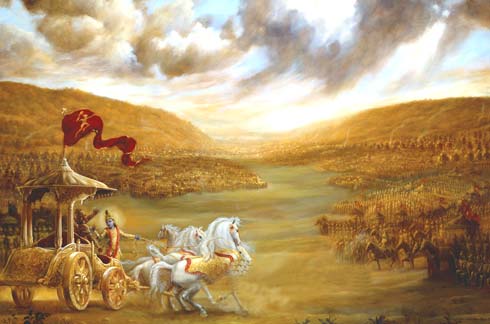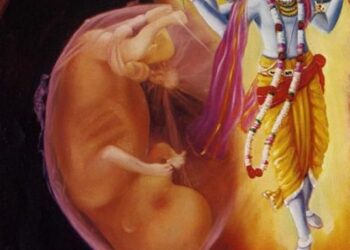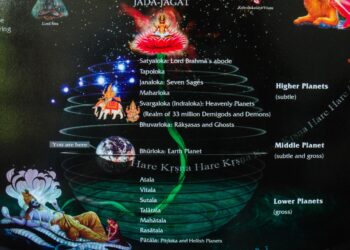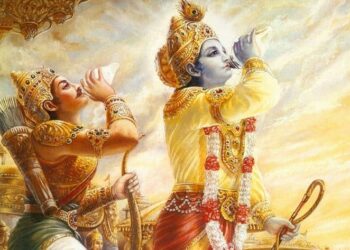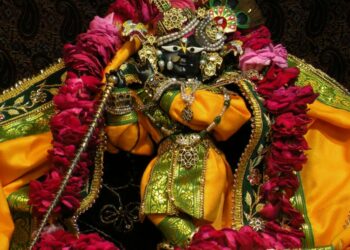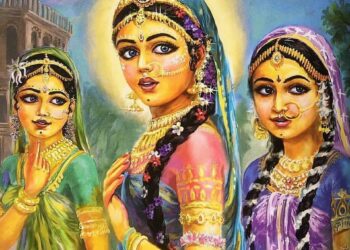TEXT 25
dhūmo rātris tathā kṛṣṇaḥ
ṣaṇ-māsā dakṣiṇāyanam
tatra cāndramasaṁ jyotir
yogī prāpya nivartate
SYNONYMS
dhūmaḥ—smoke; rātriḥ—night; tathā—also; kṛṣṇaḥ—the fortnight of the dark moon; ṣaṭ-māsāḥ—the six months; dakṣiṇa-ayanam—when the sun passes on the southern side; tatra—there; cāndra-masam—the moon planet; jyotiḥ—the light; yogī—the mystic; prāpya—achieving; nivartate—comes back.
TRANSLATION
The mystic who passes away from this world during the smoke, the night, the fortnight of the waning moon, or the six months when the sun passes to the south reaches the moon planet but again comes back.
PURPORT
In the Third Canto of Śrīmad-Bhāgavatam Kapila Muni mentions that those who are expert in fruitive activities and sacrificial methods on earth attain to the moon at death. These elevated souls live on the moon for about 10,000 years (by demigod calculations) and enjoy life by drinking soma-rasa. They eventually return to earth. This means that on the moon there are higher classes of living beings, though they may not be perceived by the gross senses.
TEXT 26
śukla-kṛṣṇe gatī hy ete
jagataḥ śāśvate mate
ekayā yāty anāvṛttim
anyayāvartate punaḥ
SYNONYMS
śukla—light; kṛṣṇe—and darkness; gatī—ways of passing; hi—certainly; ete—these two; jagataḥ—of the material world; śāśvate—of the Vedas; mate—in the opinion; ekayā—by one; yāti—goes; anāvṛttim—to no return; anyayā—by the other; āvartate—comes back; punaḥ—again.
TRANSLATION
According to Vedic opinion, there are two ways of passing from this world—one in light and one in darkness. When one passes in light, he does not come back; but when one passes in darkness, he returns.
PURPORT
The same description of departure and return is quoted by Ācārya Baladeva Vidyābhūṣaṇa from the Chāndogya Upaniṣad (5.10.3-5). Those who are fruitive laborers and philosophical speculators from time immemorial are constantly going and coming. Actually they do not attain ultimate salvation, for they do not surrender to Kṛṣṇa.


